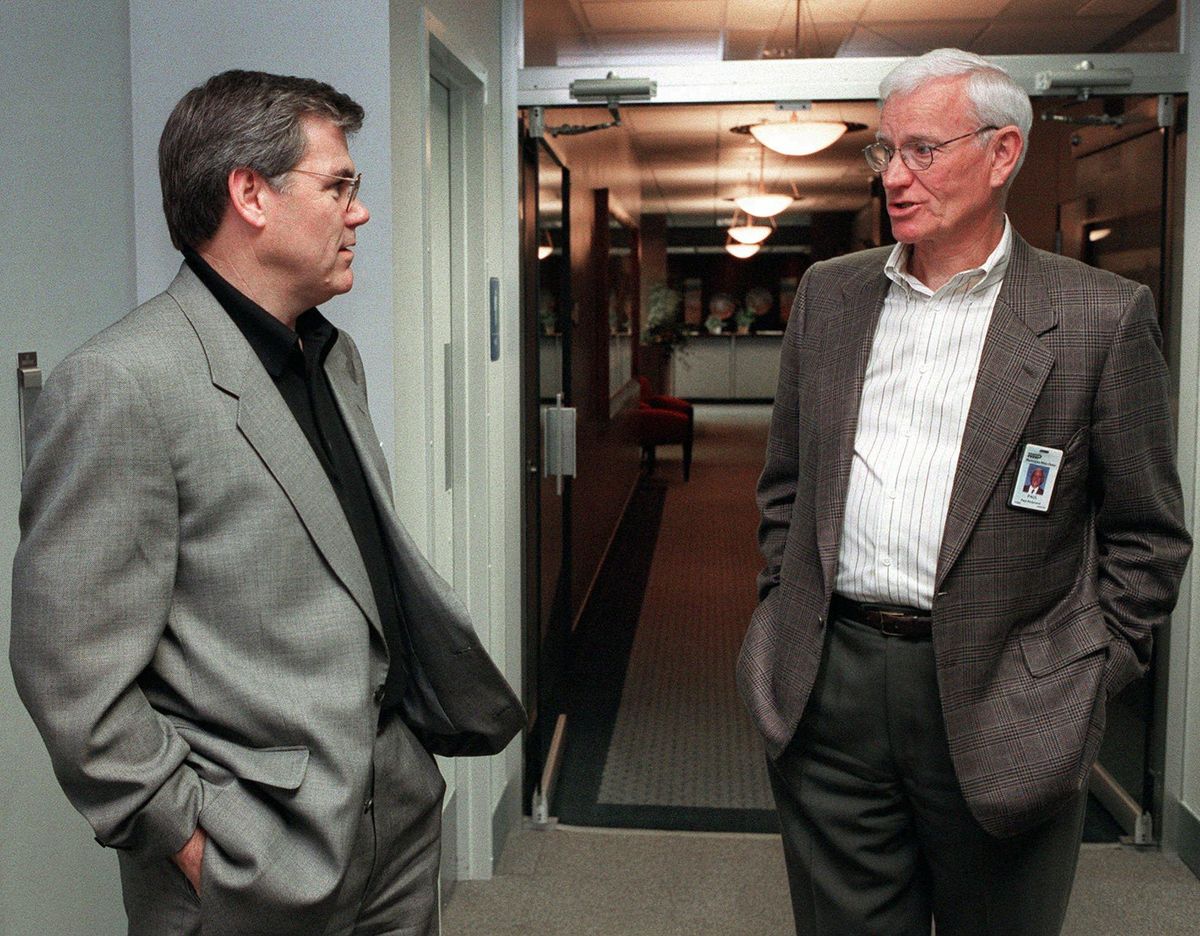Avista’s community leadership role expected to continue

For more than a century, Avista and Washington Water Power Co. contributed leadership and charitable support to the Spokane area’s economic development and civic betterment initiatives.
In the early 1980s, for example, it was WWP CEO Wendell Satre who planted the seed for Spokane’s now-thriving university district. Satre contended at the time that Washington State University should have been constructed in Spokane instead of Pullman, and needed to begin correcting the mistake by moving graduate programs to Spokane where they could interact with the larger urban economy.
Later in the 1980s, WWP CEO Paul Redmond joined with the late Spokesman-Review Publisher William H. Cowles 3rd and local banker Dave Clack to lead Momentum 87, a group that sought to attract new jobs and raise Spokane wages. Momentum 87 recruited Boeing to construct a factory on the West Plains and pushed for the expansion of higher-education opportunities.
Stacey Cowles, who became the locally owned newspaper’s publisher following his father’s death, said “it’s sort of the passing of an era” to see another of Spokane’s pioneering local companies sold to outside interests.
“When you have a local owner, they pay more attention to what’s going on in the community and they are more attentive philanthropically,” Cowles said Wednesday.
However, he said, with Avista’s new Canadian ownership, the leaders at Spokane’s utility still “want to preserve the role they’ve had for all these years.”
Laurine Jue, senior communications manager at Avista, said Wednesday that Avista’s corporate contributions have averaged about $2 million per year.
“Hydro One has committed to nearly doubling Avista’s community contributions to $4 million annually, and in addition, Hydro One will make a $2 million annual contribution to the Avista Foundation,” she said.
The foundation funds community nonprofit organizations throughout Avista’s service area.
Avista Stadium, home of the Spokane Indians minor league baseball team, represents another of the utility’s longstanding community investments. Otto Klein, senior vice president of the team, praised Avista for its commitment to upgrading the facility, which opened in 1958 as Fairgrounds Recreational Park and was renamed Avista Stadium in 2000.
“We anticipate and look forward to a continued partnership,” Klein said, calling the agreement “probably the most successful” of its kind in sports.
Retired Avista CFO Jon Eliasson said that while he has no direct knowledge of the Avista buyout transaction, his familiarity with other utility buyouts makes him feel optimistic that the people who work for the company in Spokane will “have an opportunity to do the same as they always have,” in their relationships with customers and their involvement as community leaders and volunteers.
That’s how it worked out, Eliasson said, when Puget Sound Power & Light was acquired in 2009 by an Australian banking firm. And it was the same story, he said, when Warren Buffett purchased utility companies only as investments – not to change the way they operate in their local communities.
Cowles said Avista “has had a remarkable history in terms of all of its involvements to promote better wages and jobs for the community going back to the time of streetcars, their involvement in Momentum, and all their leadership in the chamber of commerce, economic development and the United Way. I’m not sure it (the sale) is going to make any difference, at least in the near term.”
“It’s the way of business,” Cowles said. Avista has been “a tiny player in a world of giants. I am hopeful they have found an acquirer who would benefit as much as they would benefit from being acquired. And they get to retain a fair amount of autonomy.”